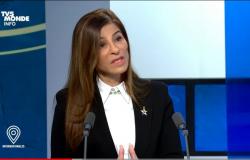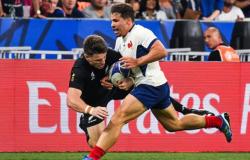The Spanish men’s national football team won gold at the Olympics, 32 years after their triumph in Barcelona in ’92. Rayo striker Vallecano became the unexpected hero.
The relationship between football and the Olympic Games has always been complex. The distrust between the IOC and FIFA throughout the 20th century led to a unique situation where the sport is included in the Olympic competition, but under very specific circumstances for the men’s category. A quota of players over 23 is applied – three per team – and federations often view the Olympic Games as a springboard for the generation that will follow the senior team, although this is accompanied by reservations and unwritten clauses from the clubs banning some of their stars from participating. This makes Olympic gold the hardest achievement to achieve for elite players, who may play in multiple World Cups or continental tournaments throughout their careers, but rarely compete in two Olympic events.
Read more:
Real Madrid crush Twente 7-0 in the Women’s Champions League
The men’s national team’s victory at Paris 2024 capped an exceptional season for Spanish football, which also saw summer triumphs at the Euro and U-19 European Championship, with the women’s team winning the League of Nations, also contributing to this success. This victory had eluded Spain for 32 years, since Barcelona 92′, when Kiko’s goal at the Camp Nou against Poland (3-2) allowed Spain to win its second gold medal in football at the Olympic Games, after their success in Antwerp in 1920. This time, Camello took Kiko’s place, becoming the hero of La Roja by scoring two goals in overtime of the final against France (5-3) then that it looked like the hosts were taking the lead.
Read more:
Brazil coach Dorival Junior discusses changing landscape ahead of World Cup qualifier against Venezuela
The fact that Camello emerged as the hero of the Olympic team was surprising. The Rayo center forward arrived at the Olympic event as one of four reserves authorized by FIFA and the IOC for each nation when participating in Paris, in addition to the official squad of 18 players. Pressure from participating federations to include the four reservists in the delegation created a small loophole in Olympic regulations, allowing discreet call-ups. It was allowed that in the event of injury or illness to a player on the official squad, reservists could replace them until their recovery. This allowed Iturbe, Mosquera, Juanlu and Camello to participate in the Games, with the latter two being crucial in both the semi-final against Morocco and the final against France. While Juanlu, Sevilla full-back, was the savior against Morocco (1-2) with a late goal which ensured another medal for the Spanish delegation, Camello, who made an unexpected appearance in the final squad to the detriment de Samu, went from a simple participant to a star at the Parc des Princes.
Read more:
Perak FC defender Tommy Mawat Bada takes stand against online racism
“I was very excited. For an athlete, going to the Olympic Games is the ultimate experience, and even more so for a footballer, who usually only gets to attend one. I have been with Denia and most of the group for a long time. I believed I could make the roster and I hadn’t planned any vacation trips to be available,” Camello told AS a week before the start of the Olympics, when his inclusion in Paris was in doubt. Last season was not easy for the Madrid striker, who, despite his total commitment and integration into a special club like Rayo, struggled with only four goals in a season, a difficult feat for any attacker. Although he was Rayo’s highest-scoring player in the club’s least prolific season in La Liga (29 goals), those low numbers did not deter Santi Denia from placing his faith in Camello, although as a reservist. A confidence that the attacker appreciated at the right time.
Read more:
Colombia and the challenge of playing at the Centenary of Montevideo
Camello accepted his role without objection and worked throughout the Olympic concentration as if he were a registered player. Without complaints or negative attitude, the striker was one of the great pillars in the dressing room, respected as one of the captains. Notably, he wore the captain’s armband in the final group match against Egypt, having filled that role due to the absence of Abel Ruiz, who had cited discomfort to allow a reserve player on. Those 90 minutes in the group stage were the only ones he played before replacing Abel in the 82nd minute of the final against France. When he entered the field, Spain led 3-2, but a goal from Mateta in stoppage time sent the match into overtime.
In extra time, Spain faced a France in great shape, deprived of its stars Fermín and Baena, European champions a few weeks earlier, and without Abel Ruiz, number 9 and captain of the team. But then came Camello, the player no one expected, regaining the lead for Spain with a delicate flick after receiving the ball in the box from Adrián Bernabé. It was the 100th minute, and the anxiety was palpable with 20 minutes remaining. The completely exhausted Santi Denia team showed enviable resilience until the last minute, when, once again, Camello, the new Kiko, sealed the match with another monumental finish.
Two superb goals from a striker who had struggled to score throughout the season with his team, and who was very close to being left out of the Olympic Games. He took the spotlight at the end, although many others contributed along the way, including coach Santi Dénia, who crowned his romance with the generation born after 2000, with whom he won the National Championships. Europe U-17 and U-19, alongside youngsters Cubarsí and silver medalists Miranda and Eric Garcia, who redeemed themselves from the silver they won in Tokyo.






